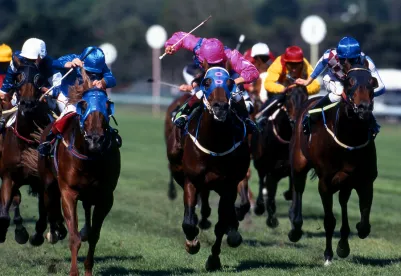Today marks the start of the Cheltenham Festival, one of the highlights of the National Hunt racing calendar.
The Cheltenham Festival can trace its roots back to 1860, when the first National Hunt Chase took place at Market Harborough. The event has been held in Cheltenham since 1911 and continues to include the Stayers Hurdle, first run in 1912 and the Blue Riband event, the Cheltenham Gold Cup, first run in 1924.
With the Festival timed to coincide with St. Patrick’s day it is perhaps no surprise that it attracts a large number of race fans and horses from Ireland with punters betting an estimated €450 million during the week.
According to Deloitte, the horse racing industry is worth a combined £5 billion to the British and Irish economies and one that employs some 85,000 people directly and indirectly.
However, a dark cloud is looming over the industry in the form of Brexit, highlighting its all pervasive threat to the economy.
In the 1960s, Great Britain, Ireland and France reached an agreement that allowed for the free movement of horses with a high welfare status such as racehorses and thoroughbreds. After Britain’s accession to the EEC in 1973 this agreement was enshrined into European law extending the free-movement of horses to all European countries with an estimated 10,000 horses per year currently moving freely between the UK, Ireland and France alone.
Despite this, the issue of the free-movement of horses is yet to be agreed between the UK and Brussels in their Brexit negotiations, which is resulting in significant fear for those working in horseracing. As things stand, the existing free-movement agreement will end on 29 March 2019.
Around 50% of horses bred in Ireland make their way to the UK and there are fears the stud market, especially in Ireland, is also facing a crisis.
Hundreds of mares and foals cross between UK and Ireland especially at this time of year as it is breeding season. They currently do so freely with just their equine passports. If the current deal does not to survive Brexit negotiations this could result in horses being be held at the border and subjected to expensive veterinary checks or worse still a period of quarantine.
If the welfare of these thoroughbred animals is not to be adversely affected, then the UK needs to work hard with its Irish and French counterparts to ensure the current protections remain in place in some other form.
Until then all bets are off.



 />i
/>i
